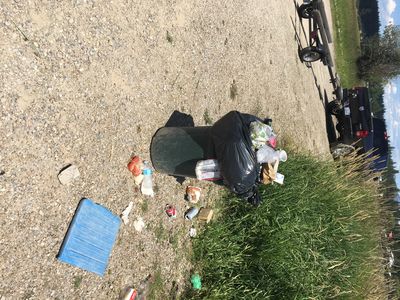Recreational garbage: Who’s responsible?

PUBLIC LANDS — Garbage is a mounting problem at access points to public lands — a mountain of a problem at boating access sites close to populated areas.
Public land managers have gone to the Pack it in - Pack it out policy in most areaa simply because they don’t have the staff or funding to pick up after the many slobs among us.
Picking up after ourselves is the least we can do to respect public and private lands and waters that provide our recreation.
Washington Fish and Wildlife Department access maintenance manager Dan Dziekan reminded himself about the reality of that policy last month.
Dziekan, who also has the unsavory job of dealing with vault toilets fouled by reprobates , checks the agency’s many water access sites weekly.
At Loon Lake he usually picks up about a quarter of a bag of trash each visit.
As a test, he placed a garbage can at the site (above). A week later it was full of four bags of garbage and he filled another bag with trash he picked up around the site.
In other words, putting out a garbage can INCREASED the amount of smelly, yellow-jacket and critter-attracting refuse and litter at the site.
The lesson: “If you place it, they will overfill it.”
So if you don’t see a garbage can at a public access site, you know the reason.
* This story was originally published as a post from the blog "Outdoors Blog." Read all stories from this blog